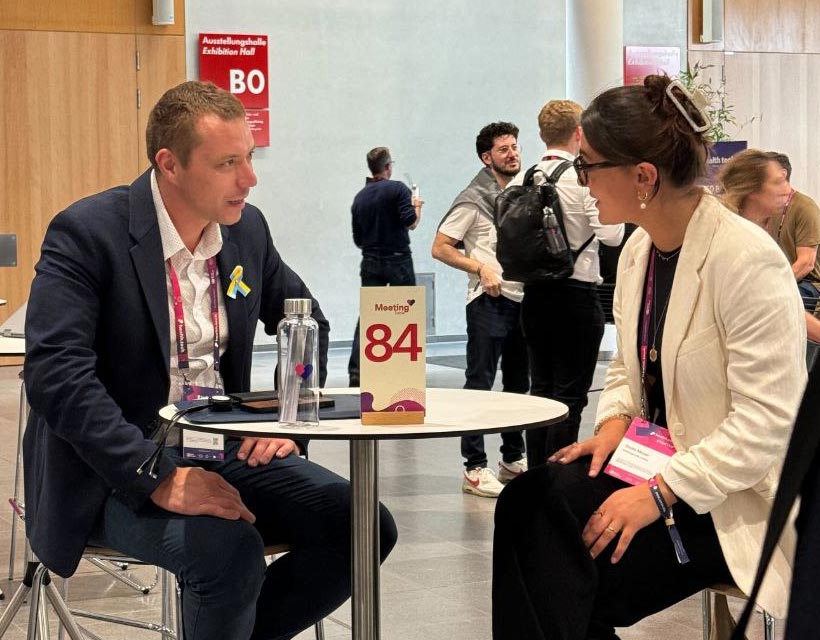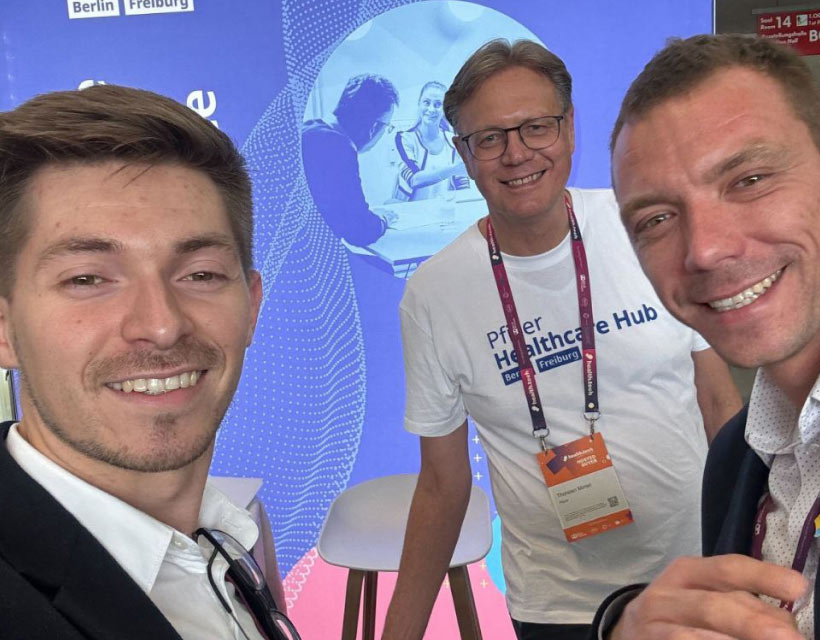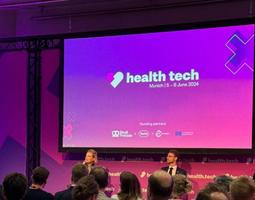June of 2024 was full of groundbreaking IT events Light IT Global was excited to be a part of. It all started on June 5 in Munich, Germany, where our team took part in Bits & Pretzels health.tech.
This is not the first time we have attended conferences powered by Bits & Pretzels, and each time, it has been a blast. This time our team brought some interesting insights from their trip to health.tech, which we would like to share with you in this article.
Navigating Global Regulatory Frameworks
Healthcare is one of the industries that requires thorough regulation and control on multiple levels. And that is more than justified, as the price of the tiniest mistake is someone’s life. So, having 135+ different regulatory frameworks is not that surprising. However, this multitude of regional, national, and global requirements brings a myriad of challenges that healthcare businesses are forced to face and overcome.
The topic of strategic approach invention and implementation was one of the hottest topics during the event, and several panels discussed it.

Liz Ashall-Payne from ORCHA highlighted the importance of focusing on similarities such as post-marketing surveillance and the inclusion of post-approval patient data from real-world settings to navigate the complex global regulatory landscape more effectively.
There is a dire need to eliminate duplicated efforts in digital healthcare application assessment and harmonize endeavors. This can be achieved by focusing on universal standards and adopting a foundational baseline review process. Such an approach, if taken seriously, can not only streamline the regulatory process but also build trust and credibility in various markets.
The Growing Importance of Tech Innovations in Prosthetics
The field of prosthetics has been historically underfunded despite the fact that over 1 million limb amputations are performed globally every year. According to a report by WHO , only 1 in 10 individuals has access to much-needed prosthetic or orthotic services.
As the number and severity of military conflicts worldwide are growing, the quicker adoption of prosthetics innovation is extremely important. At health.tech one of the speakers shared the forecast the industry should be prepared for—the number of amputees will grow from 4 million to 50 million in the near future.
These calculations make sense, as the number of limb injuries in a Russian-Ukrainian war alone reaches 65-70%.
Consequently, health.tech providers should coordinate their efforts not only to meet the growing demand for functional prosthetics but also to focus on restoring the feeling of lost limbs through bionic principles, significantly improving the quality of life for amputees.
Amplifying the patient voice is crucial for driving this vision forward, ensuring that technological advancements translate into meaningful improvements in healthcare delivery.
Progressive Integration of Immersive Technologies
One of the most exciting areas of innovation showcased at Bits & Pretzels health.tech was the use of virtual and augmented reality (VR/AR) in medical applications. Several stands at the event demonstrated numerous applications of AR/VR in healthcare as well as ahred inspiring real-life case studies.

Examples include AR/VR-driven abdominal surgery planning, allowing surgeons to "dive" into virtual representations of abdominal organs, providing a new level of precision and insight.
Additionally, non-invasive monitoring and diagnostic devices for cardiac health, AI-supported software solutions for patient management, and advanced imaging techniques for cancer treatment were prominently featured. These technologies are not just futuristic concepts but are already being implemented to improve patient outcomes and streamline healthcare processes.
One of the few issues with immersive healthcare solutions that was discussed at health.tech is the high price of AR/VR sets and the general lack of availability for such tools in more underfunded/rural areas. Unfortunately, the gap between technology and reality remains significant. Many healthcare professionals still rely on outdated methods, such as paper files and fax machines, so the slow adoption of AR/VR is logical. In our opinion, the existing digital divide is a powerful indicator of the need for better integration of digital solutions in everyday practice.
Soft Tech Earning the Place in the European Market
Typically, when we talk about digital healthcare innovations, we think of advanced software simplifying the process of scientific research or clinical trials, cutting-edge tools that help treat rare diseases, or, at least, make the workflow of a medical facility more streamlined and effective. All of those HealthTech applications are necessary and valid. Still, there’s another way to use technology to improve the quality of care for everybody. And that’s Soft Tech.

Several speakers at Bits & Pretzels emphasized the importance of the solutions’ usability and patient engagement, as Soft Tech is gaining importance over pure technological innovations. Technologies that enhance user experience and patient interaction are proving to be just as vital for achieving better care outcomes.
This shift reflects a growing recognition that successful HealthTech solutions must be user-friendly and accessible to a broad range of patients. In this regard, patients' engagement in the development and implementation process ensures that innovations truly meet the audience’s needs making the product truly useful.
Transformative Potential of the European Health Data Space
One of the most prominent discussions at Bits & Pretzels revolved around the prospects of European Health Data Space (EHDS), which aims to standardize and ensure interoperability of health data across Europe, enhancing medical care and reducing errors.
Judith Gerlach, Bavarian State Minister of Health, Care and Prevention, stated that Bavaria is committed to leading the active implementation of EHDS through collaboration with various health stakeholders, inspired by cross-border advancements in countries like Finland.
The benefits offered by EHDS implementation include:
- Better control over personal health data for individuals
- Uninterrupted data exchange across the EU for high-quality healthcare services delivery
- Establishing a single, unified market for EHRs
- Providing a reliable, trustworthy, and efficient system for health data reuse needed for research, policy-making, and regulatory activities
Final Words
Bits & Pretzels health.tech 2024 was a beacon of innovation and collaboration, highlighting the revolutionary potential of digital health technologies and IT’s ability to make European healthcare more effective not only in the distant future but also today.
Light IT Global was privileged to participate in this dynamic event, gaining invaluable insights and forging new relations. As we move forward, the lessons learned, and connections made at this conference will undoubtedly shape our approach to state-of-the-art healthcare software development, making it even more efficient and result-driven.



